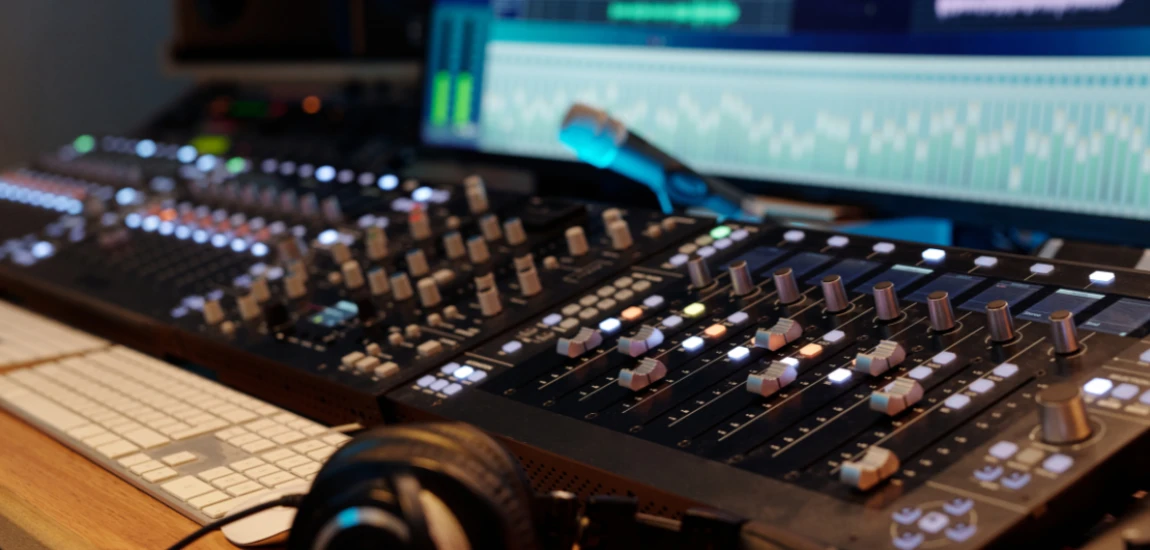Sentient Soundtracks: Adaptive Scores That Respond to Your Mood and Movement

Music has always been more than just entertainment—it’s a mirror of human emotion. From ancient rituals to modern playlists, people have long used music to set the tone for experiences. But what if music could sense your emotions and adjust itself in real time? Enter the world of sentient soundtracks, also known as adaptive scores—dynamic music systems that respond directly to your mood, movements, and even biometric signals.
This innovation isn’t science fiction anymore. From video games that change their scores depending on player actions, to wellness apps that use heart rate data to calm your breathing, adaptive soundtracks are rewriting the rules of engagement. They’re not only reshaping personal entertainment but also expanding into healthcare, fitness, storytelling, and immersive media.
In this article, we’ll explore how adaptive soundtracks work, their impact across industries, and what creators and listeners alike can expect from this evolving frontier.
What Are Adaptive Soundtracks and How Do They Work?

Adaptive soundtracks, often described as sentient soundtracks, are audio systems designed to adjust in real time based on external or internal cues. Unlike static playlists, they’re living compositions—music that listens, responds, and evolves with you.
Core Technology Behind Adaptive Music
At their core, adaptive soundtracks use data inputs such as movement, heart rate, facial expressions, or environmental factors to change musical elements like tempo, key, rhythm, or intensity. For instance, a fitness app might detect when your pace increases and seamlessly shift the beat to match your energy level. In gaming, enemy encounters might trigger an orchestral swell, while calm exploration reverts to atmospheric tones.
Biometric and AI Integration
With the integration of wearable devices, adaptive soundtracks have reached new levels. Smartwatches, VR headsets, and even EEG readers can provide data about stress levels, physical activity, or brainwaves. Artificial intelligence then interprets these signals to select or even compose music on the spot. This makes every listening experience unique to the user’s current state.
Difference from Traditional Scores
Unlike pre-recorded tracks or shuffled playlists, adaptive soundtracks are non-linear. They function like branching narratives in music, creating endless variations that respond to context. The result isn’t just background music—it’s an active, interactive partner in shaping your experience.
Adaptive Scores in Gaming: Music That Plays You Back

One of the most visible and impactful uses of adaptive soundtracks has been in video games. For decades, games have experimented with dynamic music, but today’s technology makes scores more responsive than ever.
Enhancing Immersion Through Sound
In gaming, immersion is everything. When the score swells during a boss battle or softens in a quiet exploration sequence, players feel more emotionally connected. Adaptive soundtracks ensure that these transitions are seamless, amplifying both adrenaline and atmosphere. Games like The Legend of Zelda: Breath of the Wild or Red Dead Redemption 2 use adaptive scores that respond to exploration, combat, or even weather conditions in real time.
Personalizing Player Experiences
Because no two gaming sessions are alike, adaptive music ensures that every player experiences unique soundscapes. A cautious player might hear longer stretches of ambient tones, while a more aggressive player triggers more frequent battle motifs. This personalization makes adaptive scores a storytelling device in themselves.
The Future of Game Soundtracks
With AI-driven music composition, the future could involve scores that never repeat—fully unique compositions created in response to a player’s decisions, mood, and pace. This evolution turns gaming music into a living, breathing element of gameplay rather than a static soundtrack.
Fitness and Wellness: Soundtracks for the Body and Mind

Adaptive soundtracks aren’t confined to entertainment—they’re revolutionizing health, wellness, and fitness experiences. Music has long been linked to physical performance and emotional regulation, but adaptive technology takes it to another level.
Fitness Training with Adaptive Beats
Apps and smart devices can sync music tempo to running cadence, cycling pace, or workout intensity. Instead of skipping tracks to find the right rhythm, adaptive systems adjust the beat instantly. Research shows that syncing movement with music enhances stamina, motivation, and endurance, making workouts more effective and enjoyable.
Music for Stress and Relaxation
In wellness, adaptive soundtracks can read biometric signals such as heart rate variability or breathing patterns to provide calming soundscapes. Meditation apps are already experimenting with adaptive music that adjusts as users relax, creating a feedback loop between body and sound. The result? More effective stress management and mindfulness practices.
Healing and Healthcare Applications
Hospitals and therapists are exploring adaptive music as part of treatment. Patients with anxiety, PTSD, or chronic pain can benefit from real-time soundscapes that respond to their emotional state, offering non-invasive therapeutic support. The fusion of neuroscience, music therapy, and adaptive technology has the potential to redefine mental and physical healthcare.
Storytelling and Cinema: Emotional Scores That Evolve with You

Film and television have long relied on music to set emotional tone, but adaptive soundtracks are pushing boundaries in storytelling mediums.
Interactive and Immersive Films
In interactive cinema or VR storytelling, adaptive scores can respond to audience engagement. For example, if a viewer lingers on a tense scene, the soundtrack could intensify; if they choose a lighter narrative path, the music shifts accordingly. This transforms passive viewing into an emotionally dynamic experience.
Emotional Synchronization
Adaptive soundtracks are capable of analyzing audience reactions through facial recognition or biometric sensors. If viewers appear anxious, the score might subtly calm down; if they’re disengaged, it might add tension or excitement. This form of personalization creates deeper emotional bonds between story and audience.
The Future of Narrative Soundscapes
Imagine streaming services offering adaptive soundtracks that tailor themselves to each viewer’s mood. A romance scene could feel uplifting to one viewer while evoking bittersweet nostalgia in another. By blurring the line between composer and audience, adaptive scores turn storytelling into a co-creative process.
Challenges, Ethics, and Opportunities in Adaptive Music

Like any emerging technology, adaptive soundtracks bring challenges as well as opportunities.
Technical and Creative Limitations
Creating adaptive music requires balancing flexibility with artistic integrity. While AI can generate endless variations, there’s a risk of losing the intentionality and craftsmanship of human composers. Striking harmony between adaptive mechanics and artistic vision remains a key challenge.
Ethical Concerns and Privacy
Since adaptive systems often rely on biometric or behavioral data, privacy becomes a pressing issue. Who owns your emotional data? How should platforms use or protect it? Without clear safeguards, adaptive soundtracks risk becoming tools for surveillance or manipulation.
Expanding Creative Opportunities
Despite the challenges, adaptive music offers immense creative potential. Composers can think beyond linear scores, experimenting with branching soundscapes and emotional interactivity. For listeners, this means richer, more personalized experiences—whether running a marathon, battling digital foes, or simply unwinding after a long day.




